religion news service
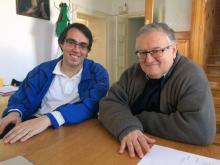
Tucked up near the Austrian border, about 160 miles from Budapest, is a small Hungarian town of 12,000 people. It’s a quiet place about three and a half hours, and two trains rides, from Hungary’s capital.
But the community has been split by the decision of the local Catholic parish priest, the Rev. Zoltan Nemeth, to allow some asylum-seekers to take shelter in a church building.
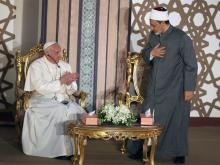
The global growth of Islam, and in particular the rise of Islamic extremism, have forced recent popes to set out, with increasing urgency, a strategy for engaging the religion.
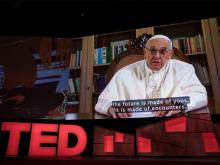
The talk — a surprise for all in the audience — recapitulated the key themes of the Argentinian pope’s view of the human person: We are all related and interconnected; scientific and technological progress must not be disconnected from social justice and care for the neighbor; and that the world needs tenderness.
I am a scholar of modern Catholicism and its relations with the world of today. From my perspective, there are two essential elements of this talk that are important to understand: the message of the pope and his use of the media.

Italian archaeologists have discovered the remains of 38 skeletons buried in a Jewish cemetery in Rome more than 500 years ago, offering further evidence of their ubiquity and persecution under papal rule.
The well-preserved skeletons were found during excavations beneath a building, in an area identified on ancient maps as “Campus Iudeorum” — Latin for “Field of Jews” — in the Trastevere quarter of Rome, just across the Tiber River from the Italian capital.
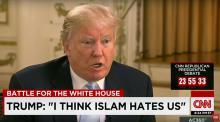
With his anti-Muslim rhetoric and planned travel bans, you’d think President Trump would be a favorite target for Islamic State’s propaganda. The jihadist caliphate in Syria and Iraq must be pulling out all the stops to slam him as the epitome of Islamophobia.
Well, think again. The extremist group that Trump vows to “totally obliterate” has hardly printed or broadcast a word about him since before the November election. The caliphate’s Ministry of Media acts almost as if he didn’t exist.
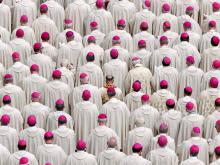
The Vatican has launched a website as part of its efforts to protect children from clerical sexual abuse and promote healing and reconciliation.
It’s the first time that the Vatican has published resources and documents on the issue, and the site is sponsored by the commission set up by Pope Francis to protect minors.

There’s barely a sound and the corridors are still empty when the neatly dressed Crea suddenly flicks a switch to reveal walls lined with Renaissance frescoes and priceless tapestries.
It’s a stunning moment, and Crea, who holds the title of “clavigero,” or chief key keeper at the Vatican Museums, never tires of it. He manages a dedicated team that opens and closes some 300 rooms every day.

The 2018 Winter Olympic Games, the 17-day athletic love-fest kicking off to the beat of the Korean janggu drum in Pyeongchang on Feb. 9, are a secular endeavor featuring more fanfare than faith, more spectacle than spirit.
But it was not always so.
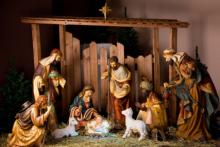
Nine in 10 Americans will celebrate Christmas this year, but a new poll shows that increasing numbers see the holiday as more tinsel than gospel truth.
This year more than ever, Americans prefer that stores and businesses welcome them with the more generic “Happy Holidays” or “Season’s Greetings” than “Merry Christmas,” according to a survey released Tuesday by the Public Religion Research Institute in partnership with Religion News Service.
And for one in four American adults (26 percent), Dec. 25 is simply a cultural holiday, not a religious holy day.
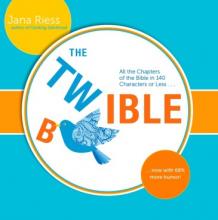
Nearly every home has at least one Bible, although few read it.
But 16 percent of Americans log on to Twitter every day. And that’s where author Jana Riess takes the word of God. A popular Mormon blogger at Religion News Service and author of “Flunking Sainthood,” Riess spent four years tweeting every book of the Old and New Testaments with pith and wit.
Now, the complete collection — each chapter condensed to 140 characters — is on sale as “The Twible,” (rhymes with Bible) with added cartoons and zippy summaries for each biblical book.
Her tweets mix theology with pop-culture inside jokes on sources as varied as ”Pride and Prejudice,” “The Lord of the Rings,” and digital acronyms such as LYAS (love you as a sister). To save on precious character count, God is simply “G.”
They may not be as large as Catholics or as active as evangelicals, but white mainline Protestants have a big thing going for them this election cycle: they are divided, and possibly persuadable.
That's according to a new poll released today (2/2/12), which found white mainline Protestants are more evenly split between President Obama and his Republican challengers than other religious groups.
"They're the most important ignored religious group in the country," said Dan Cox, research director at the Public Religion Research Institute, which conducted the poll in partnership with Religion News Service.
In a matchup between Obama and GOP front-runner Mitt Romney, mainline Protestant voters are nearly evenly divided, with 41 percent supporting Obama and 43 percent for Romney. The same holds true between Obama and former House Speaker Newt Gingrich — each is the choice of 41 percent of white mainline Protestants.
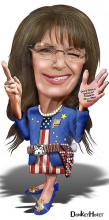
A new poll out from the Public Religion Research Institute and Religion News Service shows that just about the same number of American’s feel that Occupy Wall Street shares their values as does the Tea Party.
The split comes down partisan lines but is also generational. Eighteen-to-thirty-nine year olds are much more likely to feel that Occupy Wall Street shares their values then does the Tea Party.
What will be of great interest to watch over the coming months is the overlap between concerns of both movements. For example, neither group is a fan of the bank bailout and express an overwhelming feeling that elected officials aren’t responsive or accountable to those who elected them. I’m not arguing they will join forces any time soon, but they still could find a few areas of agreement.
What convinced me that common ground might be possible was another unlikely event, I read a column by Sarah Palin that I liked.
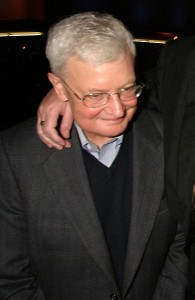 "I have no interest in megachurches with jocular millionaire pastors," Ebert writes. "I think what happens in them is sociopolitical, not spiritual. I believe the prosperity gospel tries to pass through the eye of the needle. I believe it is easier for a Republican to pass through the eye of a needle than for a camel to get into heaven. I have no patience for churches that evangelize aggressively.
"I have no interest in megachurches with jocular millionaire pastors," Ebert writes. "I think what happens in them is sociopolitical, not spiritual. I believe the prosperity gospel tries to pass through the eye of the needle. I believe it is easier for a Republican to pass through the eye of a needle than for a camel to get into heaven. I have no patience for churches that evangelize aggressively.
"I have no interest in being instructed in what I must do to be saved. I prefer vertical prayers, directed up toward heaven, rather than horizontal prayers, directed sideways toward me," he continued. "If we are to love our neighbors as ourselves, we must regard their beliefs with the same respect our own deserve."
And I'll be your new tour guide here at God's Politics.
Some of you may know me by my more official byline, Cathleen Falsani. I've been a contributing editor and columnist for Sojourners Magazine for several years now, writing a column every other month called "Godstuff" and also have contributed from time to time to this'a'here blog.
Don't believe most of what you'll hear about Kevin Smith's new movie, Red State.
It is not an angry tirade against religion, nor is it an attack on Christianity guised as a horror flick laden with gratuitous violence.
Smith has described Red State as a horror film, and it is that, but not in the conventional Nightmare on Elm Street iteration. There is violence for sure, but nothing approaching the unrelenting bloodbath of, say, The Passion of the Christ.
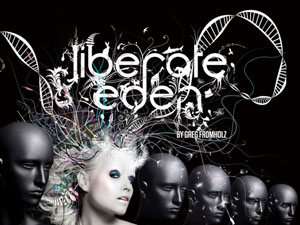 "The man who can articulate the movements of his inner life," the late Christian apologist and author Henri Nouwen said, "need no longer be a victim of himself, but is able slowly and consistently to remove the obstacles that prevent the spirit from entering."
"The man who can articulate the movements of his inner life," the late Christian apologist and author Henri Nouwen said, "need no longer be a victim of himself, but is able slowly and consistently to remove the obstacles that prevent the spirit from entering."
Throughout the ages, how Christian believers have chosen to articulate their inner lives has had many manifestations in literature, music, architecture, and other artistic endeavors.
As a means of communicating and wrestling with his inner life -- his journey of faith -- Greg Fromholz, an American expatriate youth worker for the Church of Ireland in Dublin, wrote a book titled Liberate Eden, but traditional publishing houses found that his work was a bit too iconoclastic for their tastes.
"It is just too different to be Christian," one publisher pronounced.
